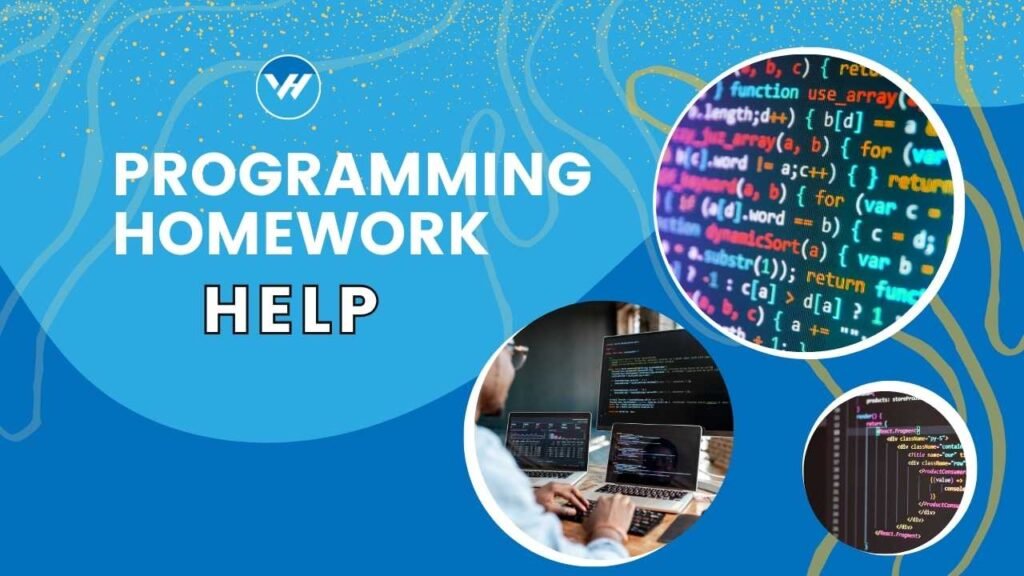
Programming homework can be a daunting task for many students, especially those who are just starting to learn how to code. Whether you’re dealing with basic syntax or complex algorithms, the challenges of programming assignments can often feel overwhelming. However, with the right strategies and resources, you can tackle your programming homework with confidence and achieve success. This guide aims to provide you with comprehensive tips and tools to help you navigate through your programming assignments effectively.
Table of Contents
ToggleUnderstanding the Assignment
Before diving into coding, it’s crucial to thoroughly understand the assignment. Here’s how you can do that:
- Read the Instructions Carefully: Make sure you understand what is being asked. Pay attention to the specific requirements and constraints.
- Clarify Doubts: If any part of the assignment is unclear, don’t hesitate to ask your instructor or classmates for clarification.
- Break Down the Problem: Divide the assignment into smaller, manageable tasks. This will make it easier to approach each part systematically.
Setting Up Your Environment
Having a well-organized and efficient working environment can greatly enhance your productivity. Here are some tips:
- Choose the Right IDE: Use an Integrated Development Environment (IDE) that you are comfortable with. Popular choices include Visual Studio Code, PyCharm, and Eclipse.
- Install Necessary Tools: Ensure you have all the necessary tools and libraries installed before you start coding.
- Create a Version Control System: Use Git to keep track of changes in your code. This can be incredibly helpful in managing different versions of your project and collaborating with others.
Effective Coding Practices
Adopting good coding practices can make a significant difference in the quality and efficiency of your code. Here are some best practices to follow:
- Write Readable Code: Use meaningful variable names, consistent indentation, and comments to make your code easy to read and understand.
- Test Your Code Regularly: Regular testing helps identify and fix bugs early. Write unit tests to ensure each part of your code works correctly.
- Debugging Techniques: Learn to use debugging tools and techniques to troubleshoot issues in your code. Understanding how to read error messages is crucial.
Utilizing Resources
There are numerous resources available to help you with your programming homework. Here are some that you can use:
- Online Tutorials and Courses: Websites like Codecademy, Coursera, and Udemy offer comprehensive programming courses that can help you understand difficult concepts.
- Coding Communities: Join online communities such as Stack Overflow, Reddit, and GitHub to seek help and share knowledge with other programmers.
- Documentation: Always refer to the official documentation for the programming language or framework you are using. It is the most reliable source of information.
Time Management
Effective time management is key to completing your programming assignments on time. Here are some tips:
- Create a Schedule: Break down your tasks and allocate specific time slots for each. Stick to your schedule as much as possible.
- Avoid Procrastination: Start working on your assignments early to avoid last-minute rushes.
- Take Breaks: Regular breaks can help you stay focused and prevent burnout. Use techniques like the Pomodoro Technique to manage your time effectively.
Seeking Help
If you find yourself stuck, don’t be afraid to seek help. Here are some ways to get assistance:
- Ask Your Instructor: They are there to help you understand the material. Don’t hesitate to ask for guidance.
- Peer Support: Collaborate with classmates to share knowledge and solve problems together.
- Online Help: Use online platforms like Chegg, Tutor.com, and others to get professional help with your programming assignments.
- Virtual Help: Virtual help can be a game-changer for budding coders. With access to expert tutors who specialize in a myriad of programming languages such as Python, Java, C++, and more, you can get the support you need to tackle complex coding challenges.
Conclusion
Programming homework doesn’t have to be a source of stress. By understanding the assignment, setting up an efficient work environment, adopting good coding practices, utilizing available resources, managing your time effectively, and seeking help when needed, you can master your programming assignments and enhance your coding skills. Remember, practice and persistence are key to becoming a successful programmer.
Frequently Asked Questions (FAQs) About Programming Homework Help
1. How can I effectively manage my time while working on programming assignments?
Managing time effectively for programming assignments involves creating a detailed schedule, breaking down the assignment into smaller tasks, and setting specific deadlines for each task. Using techniques like the Pomodoro Technique, which involves working in focused intervals with short breaks, can also help maintain productivity and prevent burnout.
2. What are some common resources I can use to get help with my programming homework?
Several resources can assist you with your programming homework, including:
- Online Tutorials and Courses: Websites like Codecademy, Coursera, Udemy, and Khan Academy.
- Coding Communities: Forums like Stack Overflow, Reddit’s r/learnprogramming, and GitHub.
- Official Documentation: Always refer to the official documentation of the programming language or framework you are using.
- Tutoring Services: Online platforms like Chegg Tutors, Tutor.com, and Wyzant.
3. What should I do if I don’t understand the assignment requirements?
If you’re unclear about any part of the assignment requirements, take the following steps:
- Re-read the Instructions: Sometimes reading the instructions multiple times can help clarify doubts.
- Ask Your Instructor: They can provide explanations and additional information.
- Discuss with Peers: Talking to classmates can offer new insights and understanding.
- Search for Similar Problems: Look for similar problems or examples online to see how they were solved.
4. How can I improve the readability and quality of my code?
Improving code readability and quality involves:
- Using Meaningful Variable Names: Choose descriptive names that make the code easier to understand.
- Consistent Indentation and Formatting: Follow a consistent style guide to make your code neat and organized.
- Commenting: Add comments to explain complex logic or important parts of the code.
- Writing Modular Code: Break down your code into smaller, reusable functions or modules.
5. What are some effective debugging techniques for programming assignments?
Effective debugging techniques include:
- Using a Debugger: Most IDEs come with built-in debuggers that allow you to step through your code and inspect variables.
- Print Statements: Insert print statements to check the values of variables at different points in your code.
- Rubber Duck Debugging: Explain your code and logic out loud to an inanimate object (like a rubber duck) to identify logical errors.
- Reading Error Messages: Carefully read and understand error messages; they often provide clues about what went wrong and where.





